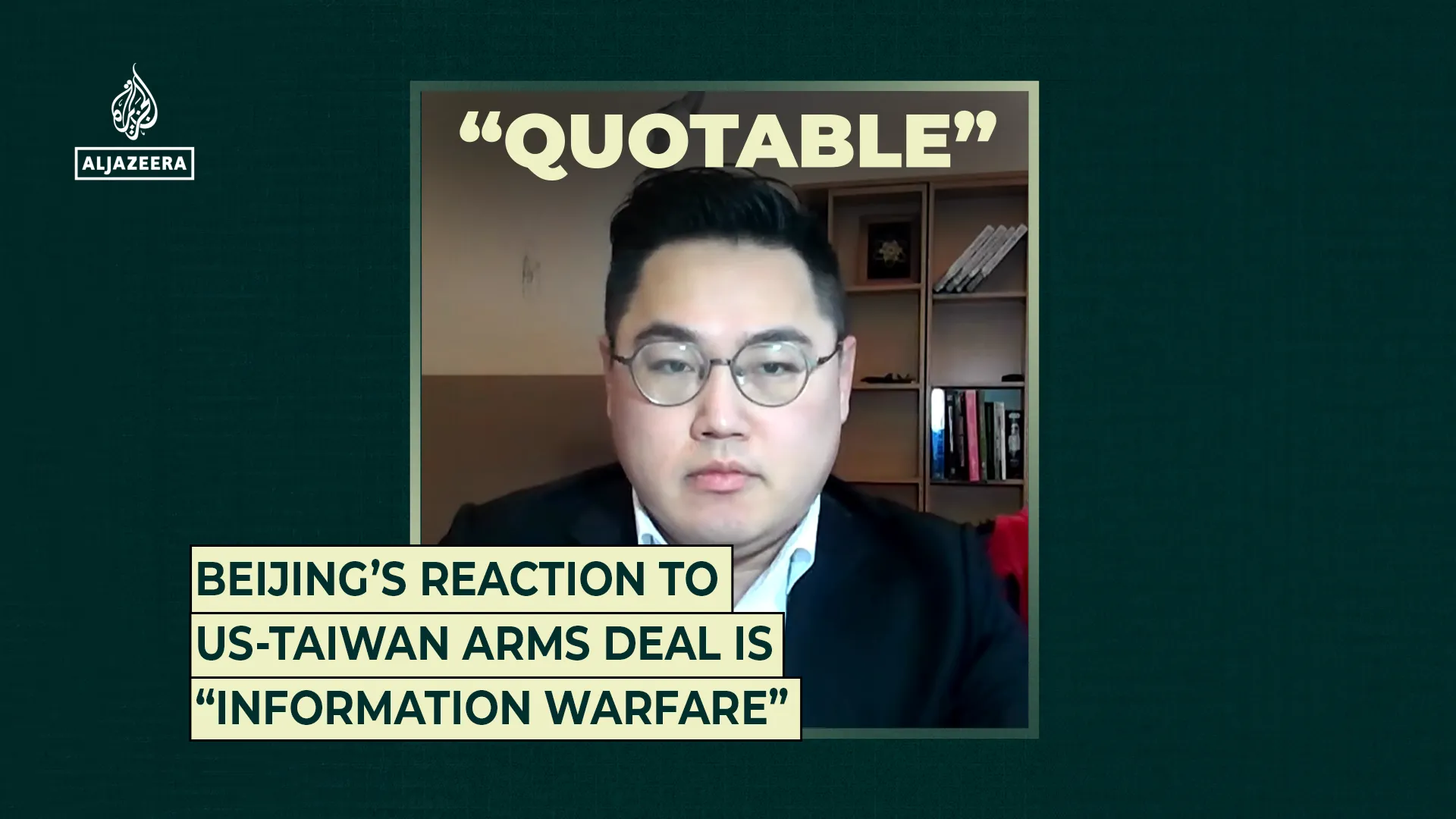Beijing’s reaction to US-Taiwan arms deal is “information warfare” | Digital Series
Kitsch Liao, associate director at the Atlantic Council Global China Hub, says Beijing’s reaction to the largest US arms sale to Taiwan is an information warfare tactic.
Published On 18 Dec 2025
